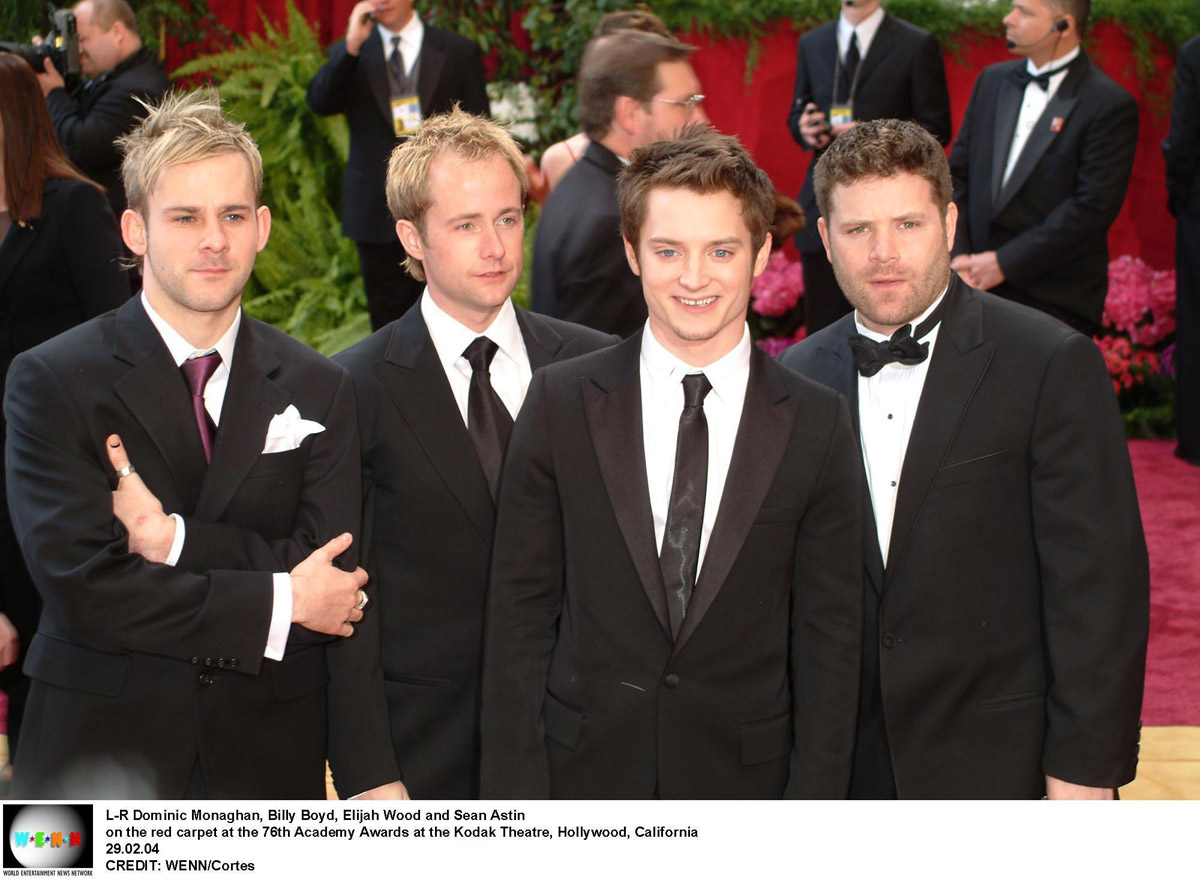
The Lord of the Rings trilogy (and The Hobbit) is, IMO, probably the greatest epic fantasy story ever written. I read (and re-read) all four of those books while I was growing up. We even named my family dog Indiana after one of the characters. I think the Peter Jackson movies are incredible. I know book fans have quibbles, but I think they’re wonderful. My family and I rewatch them every year between Christmas and New Year’s. If we don’t do the extended cuts, it’s a three-day affair. If we go extended, it’s a six-day commitment, lol. But, it’s still my six favorite movie-watching days of the entire year. (Controversial opinion: I actually don’t really like the Fellowship extended cut, but absolutely love the other two. I know someone else out there is with me!)
Anyway, I think all LOTR fans can agree that the cast and crew of those movies truly loved and respected the source material. They knew what they were doing was a big deal, and that it was going to change their lives. The nine actors in the Fellowship even got commemorative tattoos. It’s been shocking to learn just how little the principal actors were paid for their starring roles. Last year, Cate Blanchett revealed that no one got paid much for their roles. Recently, Elijah Wood was asked about his LOTR paycheck. He confirmed that they didn’t make a lot for their acting, explaining that the real prize was the friends they made along the way.
Elijah Wood is the latest cast member to be asked about the surprisingly low salaries the cast of “The Lord of the Rings” earned as part of Peter Jackson’s landmark trilogy, which went on to gross nearly $3 billion at the worldwide box office. Cate Blanchett, who starred as Galadriel in the franchise, went viral last August for saying on “Watch What Happens Live” that “no one got paid anything to do that movie.” She joked: “I basically got free sandwiches and I got to keep my [elf] ears” as pay.
Speaking to Business Insider at the 2025 Texas Film Awards, Wood confirmed his “Rings” salary was not a big one, despite leading the trilogy as Frodo. However, the actor doesn’t mind at all.
“Because we weren’t making one movie and then renegotiating a contract for the next, it wasn’t the sort of lucrative scenario that you could sort of rest easy for the rest of your life,” Wood explained, referencing how Jackson and New Line Cinema shot all three “Rings” movie back-to-back. As such, there was never time for one of the films to open before the next started filming, thus no opportunity for contract re-negotiations based on the franchise’s box office success.
Wood said New Line Cinema made a “a real gamble” shooting all three movies at once, and the studio was able to take such a risk by offering “not massive salaries” to the actors. Wood added: “The benefit of that was that we were also signing up for something that was going to be a part of our lives forever.”
In a 2019 interview on “The Howard Stern Show,” Orlando Bloom, who played Legolas, said he was paid just $175,000 for all three movies. Sean Astin, who shared many scenes with Wood as Samwise Gamgee, later said he got about $250,000 for the films. Business Insider asked Wood if he made the same as Astin, to which the actor said that figure was not accurate and “it doesn’t matter” because the value “Rings” had his on his career and life is priceless.
Regarding Blanchett’s sandwich comment, Wood called it “hilarious” and said “statements like that are not made with any kind of ire. It’s such an honor to have been a part of those films and they represent some of the best experiences of my life.”
I’ve always wondered why Elijah, Sean Astin, Dominic Monaghan, and Billy Boyd were so into doing the convention circuit, but now I know why. Even adjusted for inflation, that is absolutely f-cking crazy. Those actors left everything to live on set. They worked grueling hours for 14 months with the anticipation of mega-success. There is no way that executives didn’t account for those movies being a financial success. Sure, it was the role of a lifetime for every single one of them, but 90% of that cast had a career beforehand and was going to have one afterward.
I was also curious about residuals, so I looked it up. Apparently, no one has gotten any substantial amount in residuals, either. That is wild! Everyone knew what the stakes were; I can’t believe that no one’s agent negotiated salaries to make sure they reaped the financial benefits for decades to come. Yes, at the time, making three movies back-to-back was a “real gamble,” but why was there no contingency-based pay-off? They’re the gift that keeps on giving. Justice for Frodo!
Photos credit: Xavier Collin/Image Press Agency/Avalon, Yamak Perea/EyePix/INSTARimages, Cortes/Wenn/Avalon

















Not even 0.5% of gross profits? Sad. Reminds me of the author of Forrest Gump.
Wow.
The running commentary on this trilogy is often that it’s a level of cinema that wouldn’t be made today but this article clears up that one of the ways it was possible was massively underpaying the talent.
It worked out artistically for this venture, but damn.
Edit: and I’m reading Blanchett didn’t have a backend deal for a percentage of profits, I’d bet the other cast didn’t either. That’s insane.
That’s kind of shocking. How did their agents not understand LOTR fandom and push for some kind of percentage of profits at the very least? Elijah Wood and Sean Aston were legit stars well before LOTR and merited better!!! The hobbits’ careers since then have been lower profile so they could probably use the money. I could be wrong but I really haven’t seen the guy who played Pippin in anything else.
Bringing a massively popular book trilogy to life is a gamble in and of itself — Flowers in the Attic, Clan of the Cave Bear anyone?
Having said that — even with the risk those salaries are criminal for the time and hours put In – given the global (and ONGOING) success of those movies — the cast should have been compensated whether it was contractual or not.
Except those two books were very of a time, and Lord of the Rings is timeless. Also, the Flowers movie was utterly awful, entirely.
Were residuals/backend profits not a thing back then? I understand taking a nominal salary because it was the only way to get the films made but I’m shocked they didn’t get anything else beyond ‘exposure’ for their work unless the concept just didn’t exist when they were made.
Peter Jackson is the OG influencer getting people to do things for free for him.
As far as I’ve read before, the issue with any back-end profit deals, regardless of whether they were negotiated at the time, is that New Line cinema has been using “studio math” SINCE THE FILMS WERE RELEASED to say that they haven’t been profitable. *insert your own eyeroll*
As far back as 2005, Peter Jackson sued New Line trying to get them to turn over the money he was owed on profits, and the Tolkien estate did the same in 2008. I am not surprised the actors didn’t get paid as much as we would have expected.
The fantastic podcast What Went Wrong has a terrific multi-part series about LOTR that is definitely worth a listen, and does help explain this, as it details how the movie barely got made. I’m glad the main actors all did seem to get a sizable career boost out of it, at least.
That is WILD to see those numbers. I’m so glad they all decided to do it anyways